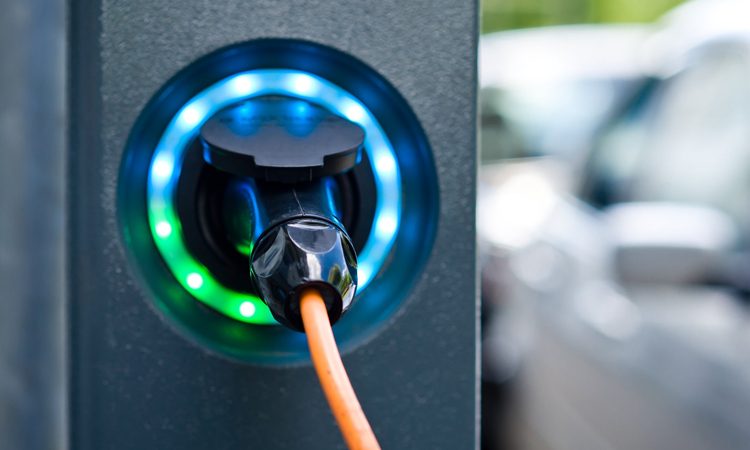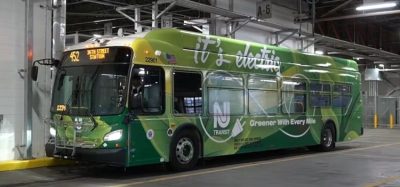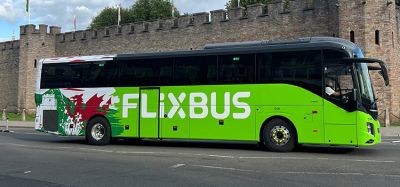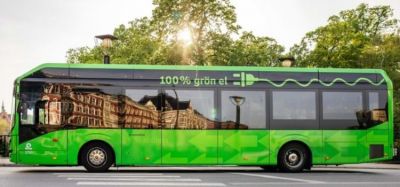The Clean Van Commitment sees 16 UK van operators switch to electric vehicles
- Like
- Digg
- Del
- Tumblr
- VKontakte
- Buffer
- Love This
- Odnoklassniki
- Meneame
- Blogger
- Amazon
- Yahoo Mail
- Gmail
- AOL
- Newsvine
- HackerNews
- Evernote
- MySpace
- Mail.ru
- Viadeo
- Line
- Comments
- Yummly
- SMS
- Viber
- Telegram
- Subscribe
- Skype
- Facebook Messenger
- Kakao
- LiveJournal
- Yammer
- Edgar
- Fintel
- Mix
- Instapaper
- Copy Link
Posted: 6 September 2018 | Intelligent Transport | No comments yet
By 2020, these 16 fleets will put more electric vans on the road than have been purchased by the whole UK industry in the last year.


New research analysis has illustrated that pollution from older diesel vans significantly damages health – costing the NHS and society £2.2 billion per annum. In response to this, 16 of the UK’s largest fleet operators have signed the Clean Van Commitment.
The Clean Van Commitment is a collective response from van operators, demonstrating a dedication to deliver zero tailpipe emissions.
The 16 businesses that have already signed up to the DfT-backed Clean Van Commitment, led by Global Action Plan in partnership with Engie, include Engie, Tesco, Anglian Water, Leeds City Council, Network Rail and Yorkshire Ambulance Service. The announcement comes ahead of the UK hosting the world’s first Zero Emission Vehicle Summit.
In doing so, the companies will invest an initial £40 million over the next two years to increase the use of electric vans.
Roads Minister, Jesse Norman MP, said: “The Government’s Road to Zero strategy outlines its intention to lead the world in the design and manufacturing of zero emission vehicles – delivering significant environmental, health and economic benefits. This latest research further highlights the very serious potential impacts of nitrous dioxide pollution and underlines the importance of the transition to greener transport. That is why the Clean Van Commitment is important, encouraging some of the biggest van fleet operators in the UK to switch to cleaner vehicles.”
The Commitment includes two targets. The first is switching a proportion of their fleet (2,400 vehicles) by 2020 and secondly, committing to deliver zero tailpipe emissions by 2028 with more than 18,000 vans if sufficient charging infrastructure and reasonably priced vehicles are available. This will help bring down the price of new electric vans whilst stimulating the second-hand electric van market in four to six years.
Sourcing 2,400 electric vans kickstarts the transition towards fully electrifying the UK’s 4 million diesel van fleet. The first batch of vehicles will deliver up to £55 million in lifetime savings from health costs in an area such as inner London.
Bex Bolland, Head of Air Quality, Global Action Plan, said: “For the first time, we know just how quickly van fleet leaders aim to adopt electric vehicles. Their collective purchasing commitments show manufacturers that demand is thriving and will help energy sector, local authority and central government planning. These 16 fleets will pave the way for the national fleet of 4 million vans to become zero emission, significantly improving the air we all breathe.”
The Clean Van Commitment aims to target the largest van fleet operators in the UK. To help more van fleets make the switch, the fleet operators recommend more charging points, tax changes that support electric vans, a greater choice of models and permissions to add charging infrastructure to depots.
Wilfrid Petrie, CEO, ENGIE UK & Ireland, said: “Air pollution is an issue that impacts everyone and we are proud to have partnered with GAP to develop the Clean Van Commitment. In January 2017 ENGIE committed to 20 per cent of its fleet to be electric by 2020 and zero diesel by 2025. With the rapid advances being made in electric vehicles and the range available, ENGIE is meeting this challenge as a key provider of infrastructure and green mobility services.”
Did you know…
- Vans are the fastest growing vehicle type in the UK with approximately 4 million vans on UK roads, only 4,400 of which are electric
- There has been a 74 per cent growth in vans since 1996 and the number of vans on Britain’s roads has been rising more than 2.5 times quicker than cars.
- Diesel vehicles make up 96 per cent of the van market, with each driving over 20,000km on average a year compared to 12,800km per car
- London, Birmingham and Slough have the highest number of vans, their van bill to the NHS totals £285.5 million per annum, £150 million and £50 million accordingly.
Related topics
Air Quality, Alternative Power, Fleet Management & Maintenance
Related modes
Van
Related cities
United Kingdom
Related organisations
Department for Transport (DfT), Global Action Plan
Related people
Bex Bolland, Jesse Norman, Wilfrid Petrie








